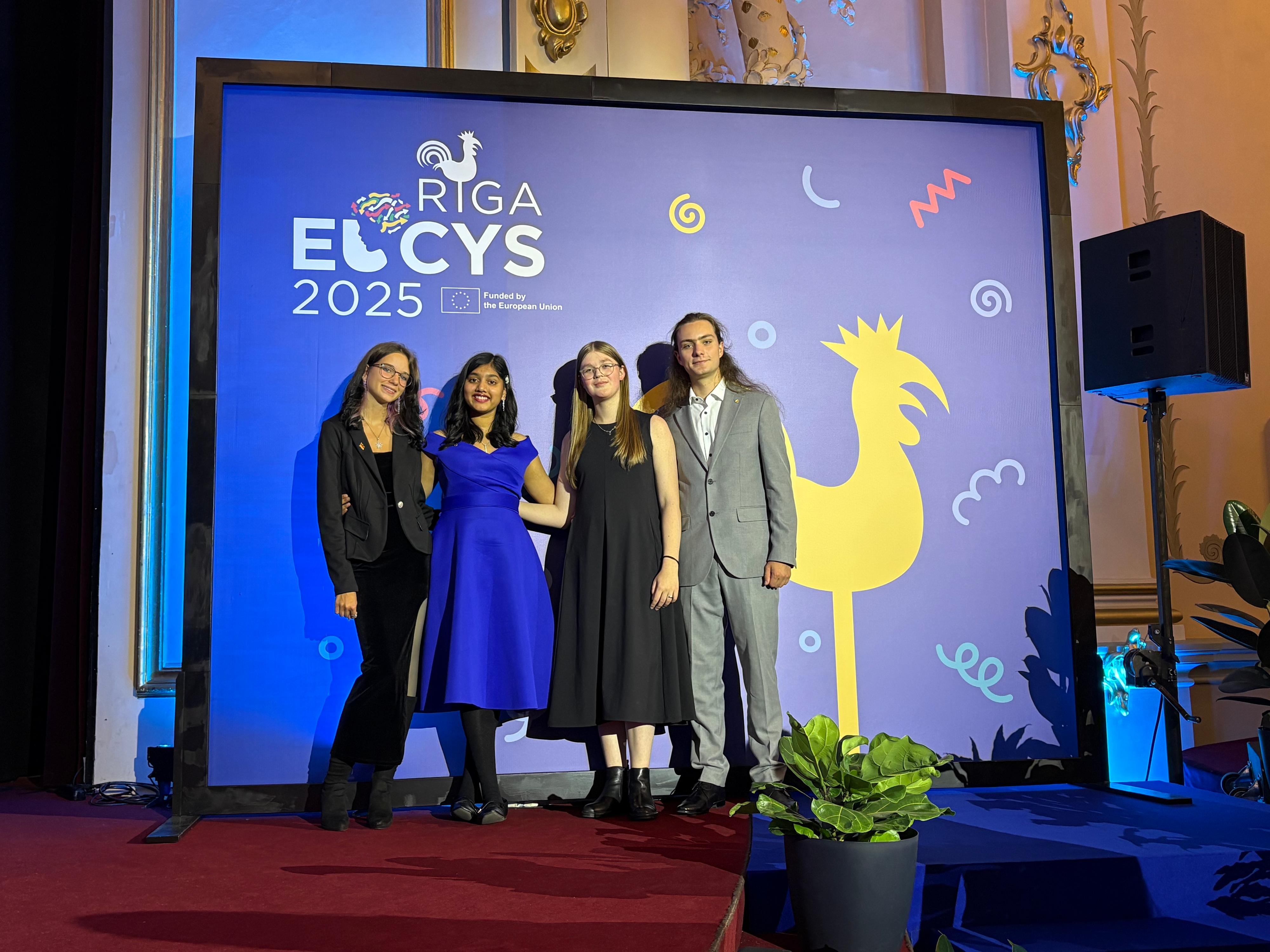All Four Winners of the DFG Europa-Preis Also Successful at the European Union Contest for Young Scientists in Riga
Third place and two special awards / Preparation including mentoring and coaching support
The successful young researchers at the EUCYS in Riga: Mia Maurer, Misha Hegde, Johanna Freya Pluschke and Vincent Engelbrecht (from left to right).
© DFG
All four winners of the Europa-Preis 2025 awarded by the Deutsche Forschungsgemeinschaft (DFG, German Research Foundation) also received international distinctions at this year’s European Union Contest for Young Scientists (EUCYS). The four national winners of Jugend forscht presented their projects to the international EUCYS jury in Riga, Latvia, where the competition was held from 15 to 20 September involving 133 young researchers aged 14 to 20 from 37 participating countries.
The team of Mia Maurer (15) and Misha Hegde (15) took third place in the main awards category, which is endowed with €3,500, while Vincent Engelbrecht (19) received a special award: a one-week research and study visit to a facility of EUROfusion, the European fusion research consortium. Another special award conferred by the European Space Agency (ESA) went to Johanna Freya Pluschke (18), who will be able to take part in a training session at the European Space Security and Education Centre (ESEC) in Belgium.
Misha Hegde and Mia Maurer investigated the extent to which bacteriophages – viruses that infect only bacteria – can combat pathogens in living plants. They isolated and purified phages from soil samples and studied the environmental conditions under which the phages reproduce best. In the process, they discovered a previously unknown phage that could potentially be suitable for biological pest control.
Engelbrecht impressed the jury with a management system that uses an app to map and control all essential processes involved in zoo administration. Already successfully tested in practice, the software enables zoo operators to monitor operations efficiently, organise finances and optimise workflows while complying with all legal requirements. This not only saves administrative resources, it also improves animal welfare.
Johanna Freya Pluschke worked on a new concept for a particularly durable electronic ion thruster for space travel. She programmed an elaborate computer simulation enabling engines to be assembled virtually and tested for efficiency. As a result, actual construction is not necessary until the optimum design has been determined by simulation, thereby resulting in significant cost savings.
In addition to providing the students with academic mentors, the DFG financed additional coaching so as to help the students prepare their English-language presentations.
The DFG has awarded the Europa-Preis (Europe prize) every year since 2010 to the winners of the national youth science competition Jugend forscht. As well as receiving €1,000, each prize winner is provided with dedicated support in preparing for the EUCYS.
The next EUCYS competition will take place in Kiel from 22 to 27 September 2026.
Further Information
- For information on the EUCYS 2025 in Rig(externer Link)
- For information on the DFG’s Europa-Prei(interner Link)
Media contact
| E-mail: | presse@dfg.de |
| Telephone: | +49 228 885-2109 |
